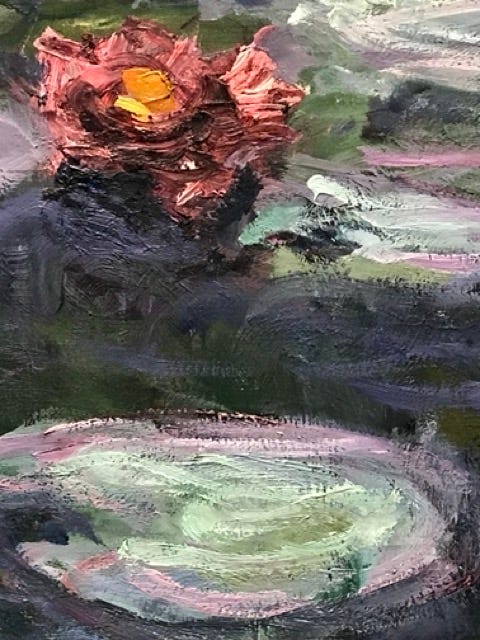Do you experience existential depression?
A psychologist's perspective on emotions in creative people
“I'm never finished with my paintings; the further I get, the more I seek the impossible and the more powerless I feel.” - Claude Monet
Closeup of a Water Lilly painting in the exhibit, “Monet The Late Years” at the Kimbell Museum, Ft. Worth, photo by Kathy Garland
Monet had moments of doubt and feeling powerless. Even though he was a successful artist, …
Keep reading with a 7-day free trial
Subscribe to The Light In Us to keep reading this post and get 7 days of free access to the full post archives.





